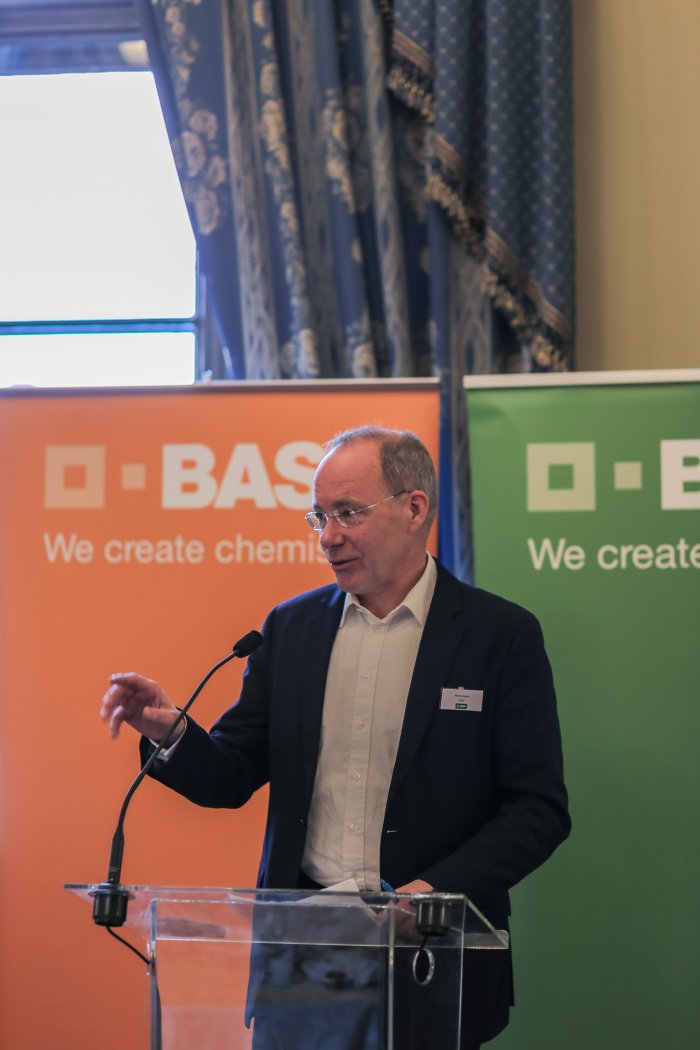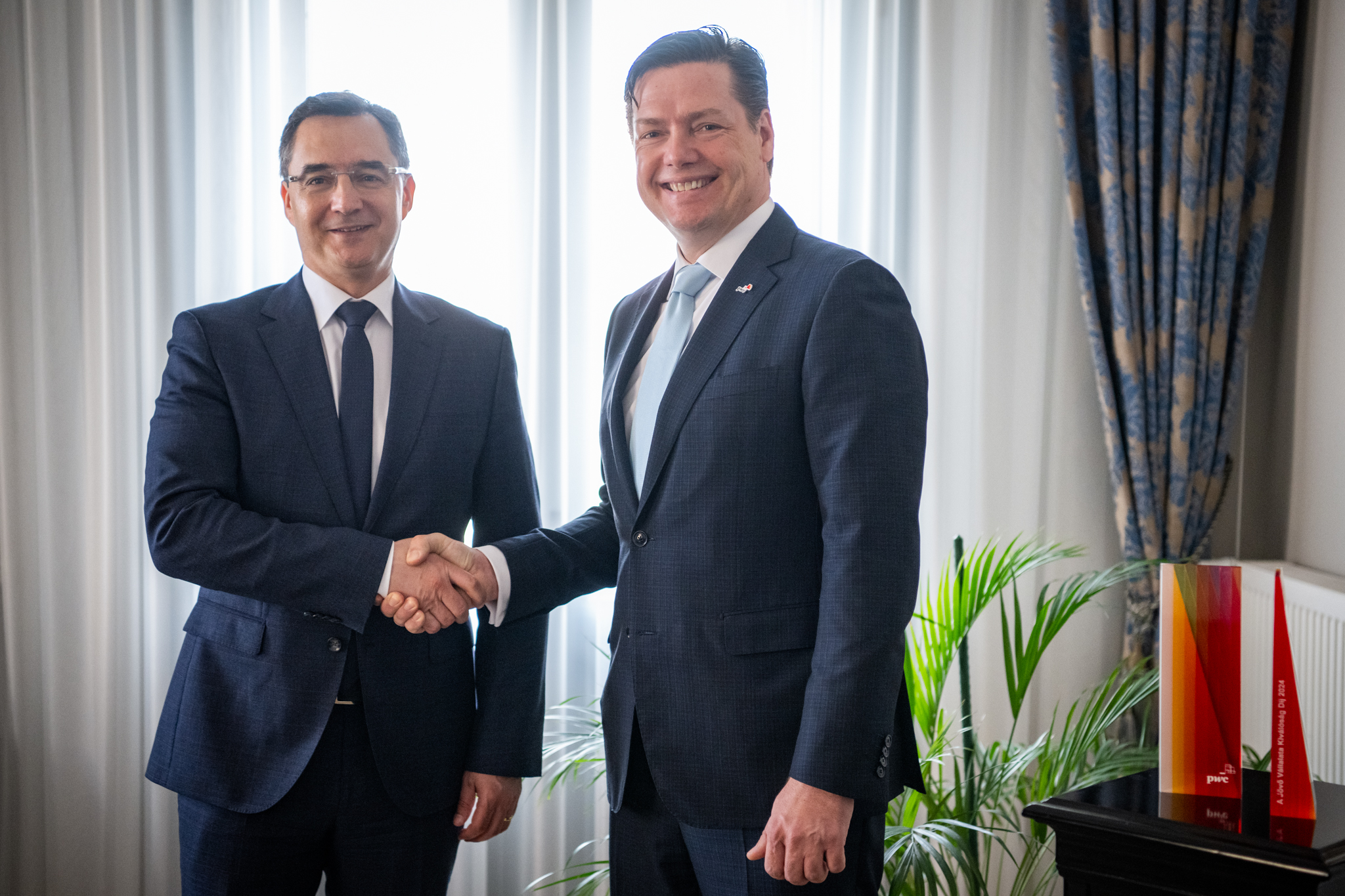Sustainability in focus at BASF CEO business breakfast

BASF Hungary organized a CEO business breakfast, focusing on concrete actions to achieve sustainability and an economy fit for the future, with the participation of Csaba Kőrösi, the head of Directorate for Environmental Sustainability at the Office of the President of Hungary and BASF EMEA president, Markus Kramer.
Markus Kramer
The host of the event was Thomas Narbeshuber, head of BASF Central and Southeast Europe. Alongside the concrete actions, the business breakfast focused on highlighting the importance of the legislative framework and welcomed top-level leaders from the important Hungarian and international companies, representatives from all major associations and representatives of important political decision-making bodies, such as the Ministry for Innovation and Technology.
In his presentation, Kőrösi gave an insight into global sustainability developments and drew up a sustainability vision for Hungary. In his view, sustainability cannot be regarded as separate from economic and social developments but needs to consider all aspects. Therefore, there is a need to set new priorities, develop plans and change rules, institutions, and mechanisms, he argued.
A transformation "bigger than the industrial revolution"
"The world (including the business scene) is currently in the largest transformation we have ever embarked on, much bigger than the industrial revolution was," Kőrösi said. "The traditional perception is prompting that we shall have the current system continuing, we add some more money for sustainable solutions and that additional money will save our lives and businesses. But this is wrong."
"The markets are undergoing a trajectory change nowadays. We need to reconsider our economic activities with a careful view to the overall balance of all assets, including the social, human, natural, built and financial capitals," he said.
"The integrated approach is inevitably redefining and will restructure markets. In the upcoming 15 years, USD 90-100 trillion of investment is expected to come into projects, solutions, new technologies if we really want to achieve our agreed sustainability goals. In 20 years, 40% of the global GDP will be generated by companies that do not exist today or are still in embryonic forms. There will be new winners and new losers. Where do we want to be as countries or companies? The time is now to decide," Kőrösi noted.
The need for a framework
Representing business, Kramer called the political decision-makers to action. He stated that industry has a huge role in shaping the future of mankind, but business alone cannot solve the problem, as an optimal framework is needed for fulfilling the needs of the society.
"What I wanted to tell you here, in Hungary, is that the biggest step towards climate protection was the victory of the free market over the socialist system. And you, Hungarians played an important role in it with opening the fence in 1989," Kramer said.
"It is always the markets that solve the problems, and the governments need to provide the suitable framework for that. There is a direct link between the legislative framework, the implementation of the laws and the country’s sustainability performance. If we take the list of the countries with the highest pollution per capita, we will see that these are the countries that are suffering from corruption the most," he added.
After the presentation of Kőrösi and Kramer, a panel discussion was held featuring the keynote speakers as well as Dale Martin (Siemens), Anita Simon (Alteo) and Ekkehard Philipp (Fox Automotive). In the panel discussion, participants elaborated on the needed framework conditions to make the transition an economical success. They concluded that innovation and education are key success factors.
In his closing sentences, Narbeshuber pointed out that for reaching common goals expressed in the speeches and the panel discussion, open, non-dogmatic dialogues like the CEO business breakfast are needed much more often.
SUPPORT THE BUDAPEST BUSINESS JOURNAL
Producing journalism that is worthy of the name is a costly business. For 27 years, the publishers, editors and reporters of the Budapest Business Journal have striven to bring you business news that works, information that you can trust, that is factual, accurate and presented without fear or favor.
Newspaper organizations across the globe have struggled to find a business model that allows them to continue to excel, without compromising their ability to perform. Most recently, some have experimented with the idea of involving their most important stakeholders, their readers.
We would like to offer that same opportunity to our readers. We would like to invite you to help us deliver the quality business journalism you require. Hit our Support the BBJ button and you can choose the how much and how often you send us your contributions.








